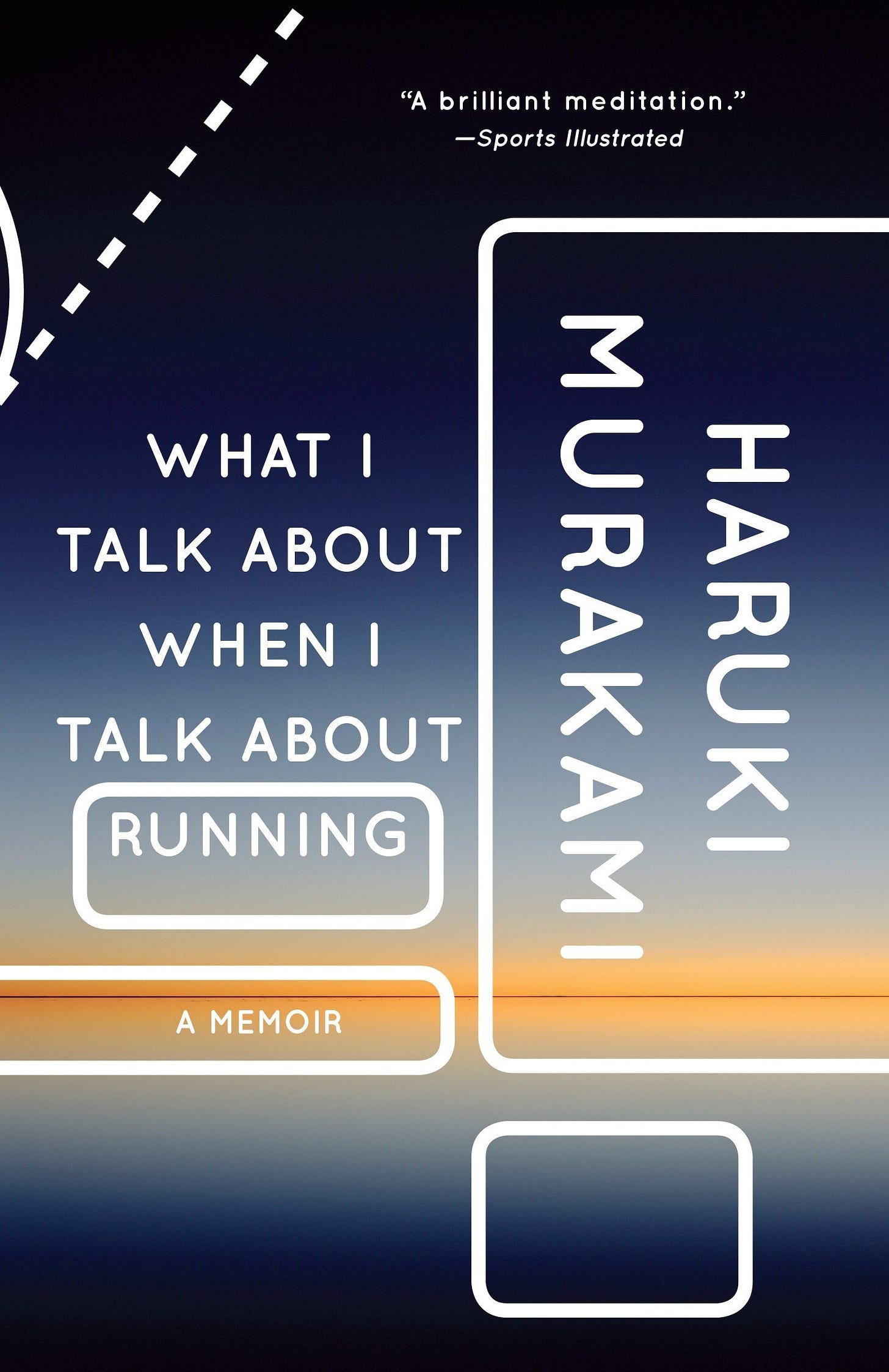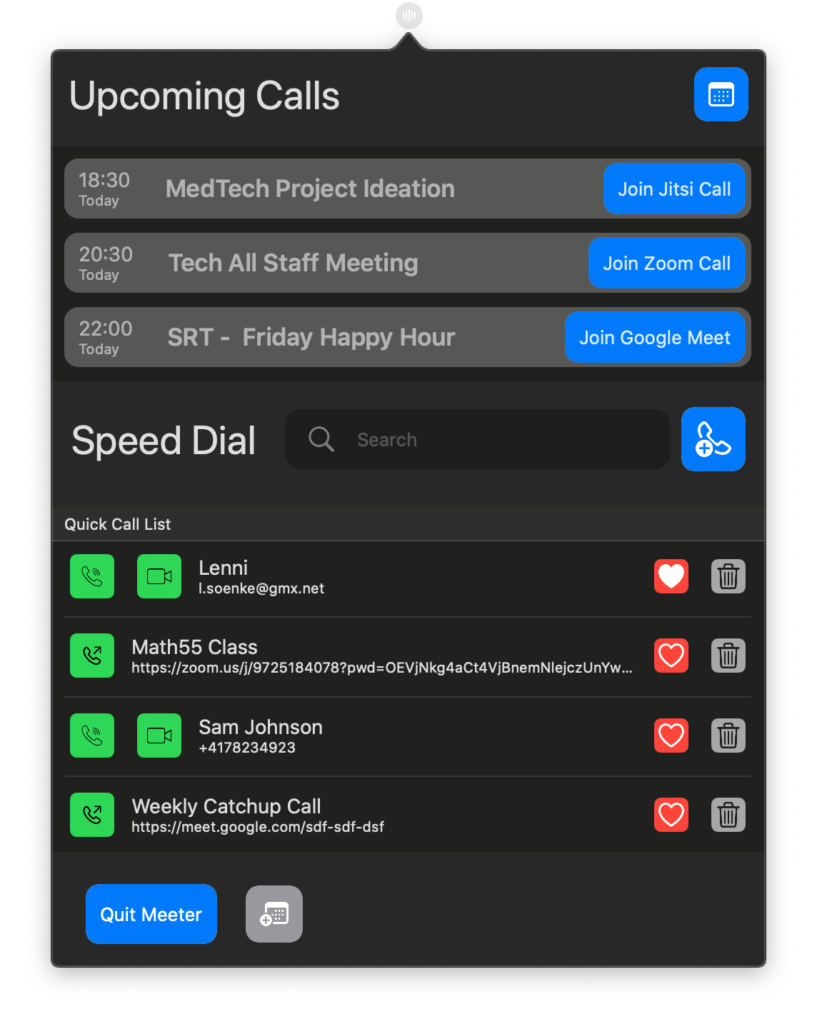Sunday Snapshots (17th May, 2020)
1 year anniversary edition, Running and The Process, Quibi, Meeter, and The Gentlemen
Hey everyone,
Greetings from a very rainy Evanston!
Today is the one year anniversary of this newsletter.
1 year. 52 issues. 70,000+ words. 100+ messages.
The core part of my learning process? Yes. An amazing way to meet new people who are wicked smart? Yes. A catalog of how my thinking has evolved? Yes.
This newsletter has been all that, but the real value has been deeply personal and completely behind-the-scenes. In a year where the most important events felt outside my control, this was a weekly touchpoint where I felt that my actions could decide my destiny. Put in effort and write something valuable? It shows. Slack off and put out something sub-standard? It shows too. The response has almost always been commensurate with the effort.
So whether you subscribed 12 months or 12 minutes ago, I want to thank you for being in this journey with me. I feel immensely grateful that you allow me to borrow a few minutes of your time every week. Thank you 🙏 .
Two pieces to reflect on this journey:
I had a Zoom call to catch up with fellow writer Packy McCormick whose Not Boring newsletter explores business strategy through the lens of pop-culture. We talked about how our newsletters have evolved over the last year – including our strategies for growing our readership, our writing process, the tools we use, and what’s next. Here’s a recording of our conversation.
I wrote a post called 10 lessons I’ve learned from writing a weekly newsletter for a year. Some of these lessons are reflective, some are more tactical. If you have your own newsletter, I hope it helps in some way.
With all that out of the way, this week I want to explore:
What running can teach us about the process of mastery
What we can learn from Quibi’s leadership
Context-driven calendars
An app I’ve been using to go from Zoom call to Zoom call
A don’t-want-to-think-too-much-about-it genre movie
And more!
Book of the week

I am neither a runner, nor a novelist. But novelist Haruki Murakami’s What I Talk About When I Talk About Running is one of the best memoirs I’ve read.
Why? Because it’s not really about running. And it’s not about writing either. It’s about what former 76ers GM Sam Hinkie would call the process. How do you make sure that what you do every day is in line with your long term goals? How do you remain steadfast amidst the idiosyncratic turns of life? How do keep up the intensity as you age? Murakami answers all these questions in a collection of his journal entries.
Here were my key takeaways:
Limitations create your style: Unless you’re the top 0.01% at doing something, you’ll come into a new craft with some natural limitations. These limitations will first inhibit how well you are able to do things. But the very act of you developing ways to circumvent them and still practice the craft at an ever compounding skill level is what leads to the birth of your unique style. For example, if you’re not a good researcher, you might be more tempted to create narratives in your writing. If you’re not good at catching typos, you might force yourself to use simpler phrases, creating a characteristic rhythm in your writing. These limitations become strengths and end up defining your craft. The obstacle becomes the way.
Open and closed lives: I thought this was an interesting framework. Murakami thinks about his lives in phases of openness and closeness. Before Murakami was a writer, he owned and operated a coffee shop in the morning and bar in the afternoon called Peter Cat in Tokyo with his wife. This was the “open” part of his life where he learned about human nature and how to deal with it – a frequent topic in his writing. Then, when he decided to become a novelist, he adopted a “closed” life where he goes to sleep at 9pm every day and wakes up with sun. This meant a schedule which had very little room for a social life. Each one of us has a different preferred level of the openness–closeness mix. Both are valuable. What is important is that we are deliberate about how you allocate them in our 24 hours.
This is a great book for anyone but I think you’ll enjoy it even more if you’re older (40+) – he does a lot of rumination on age, and I couldn’t appreciate it as much. If you want further proof, here are some examples of phrases that Murakami uses to take his writing to the next level:
All my muscles feel like they’ve been shaved away with a rusty plane.
If somebody asks me how many records I have, all I can say is, “It seems like I have a whole lot. But still not enough.”
The sad spreadsheet of my life that reveals how much my debts far outweigh my assets.
To deal with something unhealthy, a person needs to be as healthy as possible.
Thanks to Brian Koppelman (co-creator of the show Billions) for the recommendation!
Business move of the week
Quibi’s CPO takes critical feedback extremely well
Quibi is a new premium, short-form video service that launched on April 6th this year. After spending millions of dollars to build hype for its service – including a Super Bowl ad that left people scratching their heads – the team is not seeing the numbers it wants to see to classify this as a “successful launch.”
So it was only natural when tech strategy writer Nathan Baschez asked his Divinations audience, “Why isn't Quibi working?”
My take was this:
I’m not convinced if there is a place for premium, short videos with heavy narrative load in people’s lives. Theoretically, these are supposed to slot into the “in between times” when you’re in a queue, commuting, etc. But how is this better than scrolling through Twitter or TikTok? Those have atomic units of content that you can mindlessly scroll through – easy to slot in. Quibi requires you to keep track of multiple narratives. It seems caught in the middle - too short and simple to compete with the golden age of TV, too long and complex to compete with atomic units of content on TikTok, IG stories, etc.
There were some good, thoughtful feedback in the thread – it seemed like everyone had an opinion. But the most thoughtful of them all came from Quibi’s Chief Product Officer (and Silicon Valley veteran) Tom Conrad:
It's true, the Quibi team is here lurking. And while we do appreciate you being nice, we appreciate even more the time you've taken to provide such thoughtful feedback. Is some of it hard to hear? Sure. Are there instances where I want to defend why we made some of the decisions that seem particularly wrong-headed? Definitely. Better perhaps though just to say that we're listening and the product team and I "come to the office" (heh) everyday hoping to make Quibi a bit better than the day before. Perhaps the best thing about this chapter is being out of the "trust your gut and experience" phase and into the real world where there is data and real users to talk to. Thanks again. Hope some of you will continue to give us a chance as we evolve.
Conrad then doubled down with specifics:
Both casting and better sharing (screenshotting, etc) were in the launch spec at one point but both got de-prioritized in the interest of getting a good-not-perfect 1.0 out. Good product leadership is about good prioritization and I failed on those two calls. Both are coming.
In an age where we face a crisis of leadership, Conrad’s candid and thoughtful response is a breath of fresh air. Sometimes (maybe even often), the best business move is to just listen and adapt. People don’t like ideas, they like people and this exchange made me like the Quibi people a lot. It certainly made me download Quibi again.
Random corner of the week
I saw this tweet earlier in the week and had only one reaction:

Context-driven calendar seem so obviously a superior product that it makes me think whether there is some very difficult technical problem to be solved. But one could make an MVP version by hooking up a series of APIs – not easy, but not rocket science either.
If you know anyone who is working on this, please send me a note by replying to this email. I’d be happy to give feedback or help in any way I can.
App of the week

If you’re like me in that you have a Mac and you’ve been doing a ton of video calls every day, Meeter will quickly become your most used app. It captures all the links to various services in one easy-to-access menubar app. It’s free, so there is no reason to not try it.
Movie of the week

I love the genre of don’t-want-to-think-too-much-about-it movies. Something that is well done but doesn’t require 100% of my attention. Personal favorites in this category are Up in the Air, Crazy, Stupid, Love, and the entire John Wick series. This week, I added a new one – The Gentlemen. With a star-studded cast and a smart approach to cinematography, this was one of the most fun movies I’ve watched in a long time.
You can rent it on Amazon Prime Video.
Drink of the week

No meal this week, but as the temperatures get higher here in the Midwest, I’ve been enjoying my cold drinks. Top of the list right now is this AmazonBasics Iced Tea with some maple syrup as a sweetener and a slice of lemon. Healthier for you than coffee, it’s a complete no-brainer.
That wraps up this week’s newsletter. If you want to discuss any of the ideas mentioned above or have any books/papers/links you think would be interesting to share on a future edition of Sunday Snapshots, please reach out to me by replying to this email or sending me a direct message on Twitter at @sidharthajha.
Until next Sunday,
Sid

